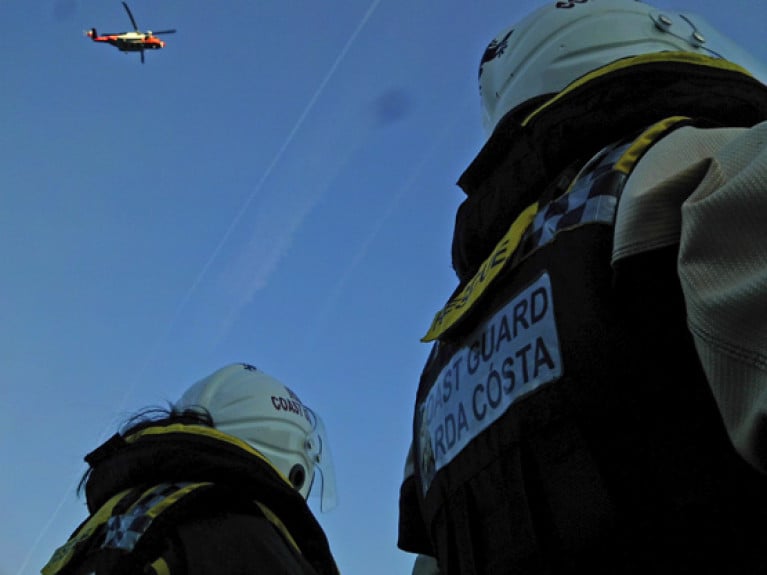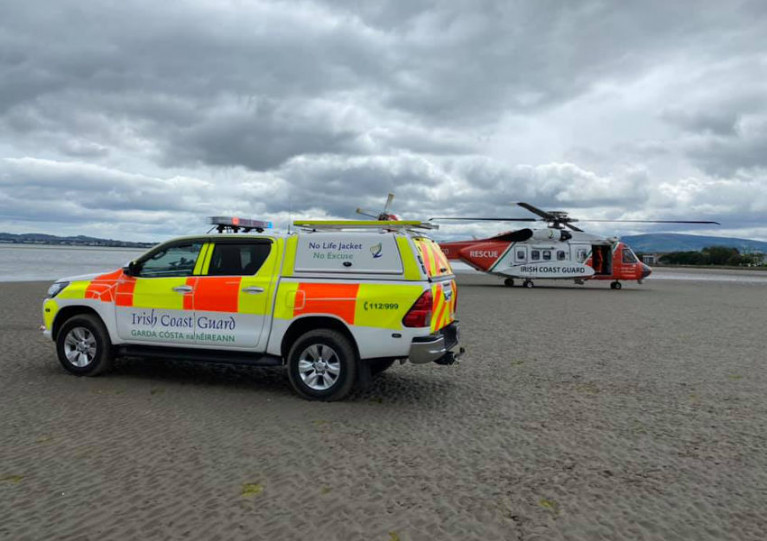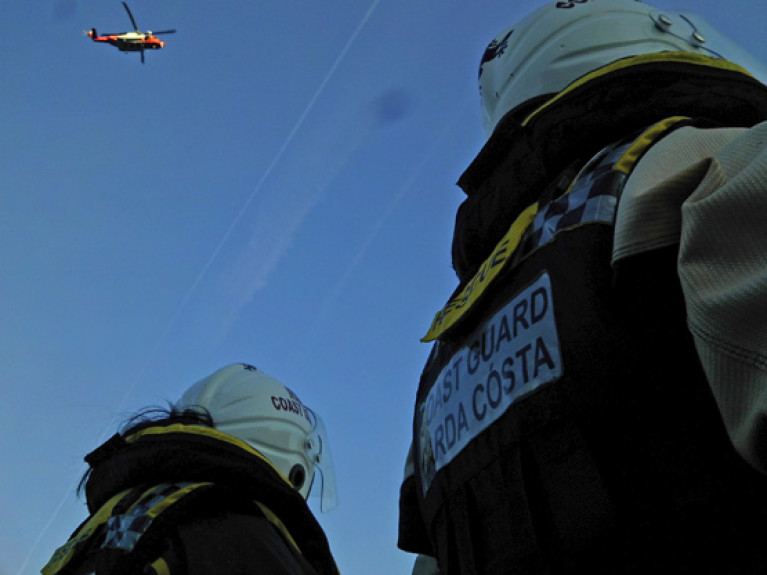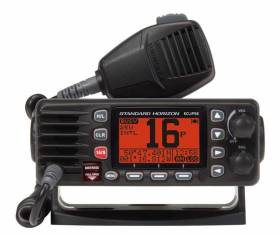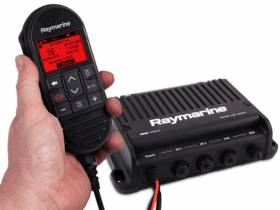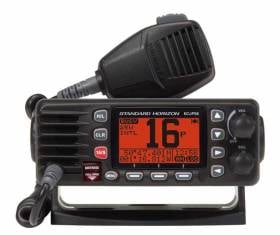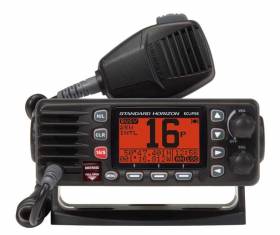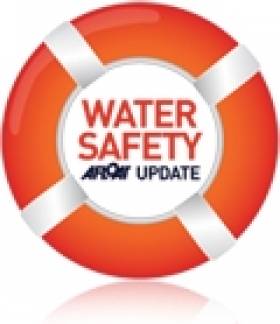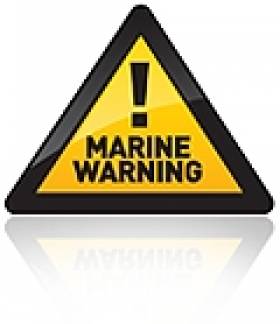Displaying items by tag: VHF
Irish Coast Guard Confirms Recent Changes to VHF Working Channels
The Irish Coast Guard has has upgraded radio equipment at a number of VHF network remote locatosn in recent months.
Following these upgrades, the table below sets out the detail of the new coastguard working channels that are now in operation:
|
Site |
Radio Call Sign |
Current Channel |
New Channel |
|
Howth Hts |
Dublin Coast Guard |
CH 83 |
CH 03 |
|
Rosslare Hts |
Rosslare Coast Guard |
CH 23 |
CH 05 |
|
Mine Hd Hts |
Mine Head Coast Guard |
CH 83 |
CH 03 |
|
Cork Hts |
Cork Coast Guard |
CH 26 |
CH 02 |
|
Bantry Hts |
Bantry Coast Guard |
CH 23 |
CH 05 |
|
Valentia Hts |
Valentia Coast Guard |
CH 24 |
CH 62 |
|
Shannon Hts |
Shannon Coast Guard |
CH 28 |
CH 64 |
|
Belmullet Hts |
Belmullet Coast Guard |
CH 83 |
CH 63 |
|
Clifden Hts |
Clifden Coast Guard |
CH 26 |
CH 03 |
|
Malin Hd Hts |
Malin Head Coast Guard |
CH 23 |
CH 05 |
|
Scalp Mountain |
Malin Head Coast Guard |
CH 85 |
CH 01 |
|
Glen Hd Hts |
Glen Head Coast Guard |
CH 24 |
CH 03 |
The remaining sites of Carlingford (CH04), Wicklow (CH02), Mizen Head (CH04), Galway (CH04), Clew Bay (CH05), Donegal Bay (CH02), Lough Ree (CH62) and Lough Derg (CH61) will retain their respective currently assigned channel.
A map showing the radio sites including the new channels and a guide to transmissing VHF distress alerts are included in Marine Notice No 61 of 2020, which is available to download below
Irish Coast Guard Issues Reminder On Planned Changes To VHF Channels
The Irish Coast Guard is reminding mariners of its planned changes to the VHF working channels currently used for communications with the public.
As previously reported on Afloat.ie, upgrades of radio equipment at a number of remote locations around the coast will be made over a 10-week period scheduled to begin tomorrow, Tuesday 6 October.
Notwithstanding the changes, which are also outlined in the previous report, Channel 16 will remain available at each site for distress, safety and calling.
Channel 67 is also available when required but may not be actively monitored at all times.
Updates as the work progresses will be made on the coastguard’s social media accounts in Twitter, Facebook and Instagram as well as on the gov.ie and Safety on the Water websites.
Changes Proposed For Irish Coast Guard VHF Channels
The Irish Coast Guard has proposed a series of changes to its VHF working channels later this year.
The move follows amendments to transmitting frequencies in order to harmonise the VHF maritime mobile band internationally, which also require the coastguard to upgrade its radio equipment at a number of sites.
These upgrades are expected to take place between Monday 5 October and mid December, with dates for the channel changeovers yet to be confirmed. The affected remote sites are listed below:
|
Site |
Radio Call Sign |
Current Channel |
New Channel |
|
Howth Hts |
Dublin Coast Guard |
CH 83 |
CH 03 |
|
Rosslare Hts |
Rosslare Coast Guard |
CH 23 |
CH 05 |
|
Mine Hd Hts |
Mine Head Coast Guard |
CH 83 |
CH 03 |
|
Cork Hts |
Cork Coast Guard |
CH 26 |
CH 02 |
|
Bantry Hts |
Bantry Coast Guard |
CH 23 |
CH 05 |
|
Valentia Hts |
Valentia Coast Guard |
CH 24 |
CH 62 |
|
Shannon Hts |
Shannon Coast Guard |
CH 28 |
CH 64 |
|
Belmullet Hts |
Belmullet Coast Guard |
CH 83 |
CH 63 |
|
Clifden Hts |
Clifden Coast Guard |
CH 26 |
CH 03 |
|
Malin Hd Hts |
Malin Head Coast Guard |
CH 23 |
CH 05 |
|
Scalp Mountain |
Malin Head Coast Guard |
CH 85 |
CH 01 |
|
Glen Hd Hts |
Glen Head Coast Guard |
CH 24 |
CH 03 |
The remaining sites of Carlingford, Wicklow, Mizen Head, Galway, Clew Bay, Donegal Bay, Galley Head, Lough Ree and Lough Derg will retain their currently assigned channel.
Channel 16 will remain available at each remote site for distress, safety and calling and will not be affected by these changes. Channel 67is also available when required but may not be actively monitored at all times.
As the upgrade work progresses, the Irish Coast Guard will inform the public that a channel has changed by the following means:
- By broadcasting on the channel that will be changing in the days leading up to the switchover
- The Irish Coast Guard’s social media accounts on Twitter, Facebook and Instagram.
- Updated information on the gov.ie website and the Safety on the Water website.
Further queries are directed to the coastguard at [email protected]
Bargains On Quality Jackets, Fishfinders & More From CH Marine
Whether you’re racing, cruising or sea angling, get set early for the new boating season with the latest deals from CH Marine.
Now’s the time to buy while stocks last in the chandlery’s selection of quality jackets from leading brands Musto and Zhik.
CH Marine also has the best prices on the internet for Lowrance Hook2 fishfinder and GPS units with a massive sale now on.
And there are special offers on handheld VHF radios: Plastimo’s SX400 is now only €129.95, a saving of €20, while the Icom IC-M25 EURO is now 25% off at €149.95.
The Feefo award-winning CH Marine ships worldwide — and with free delivery to Ireland and Northern Ireland for orders over €50. See the full range at CHMarine.com
Boaters and mariners have been reminded of the limitations of using mobile phones for emergency communication at sea.
Marine Notice No 40 of 2019 emphasises that mobile phones “should not be considered as a suitable substitute” for marine VHF equipment, which it urges all users of recreational craft to carry.
“Mobile phone coverage at sea is limited and unreliable. Mobile phones are also highly susceptible to failure due to water ingress,” the notice states.
The use of VHF, however, “makes it possible to broadcast to, and receive from, all vessels and coast stations within the vicinity in the event of an emergency”.
Where practicable, the Department of Transport, Tourism and Sport (DTTAS) says recreational craft should maintain a continuous listening watch on VHF channel 16 and DSC watch on VHF channel 70.
Further details are included in Marine Notice No 40 of 2019, a PDF of which is available to read or download HERE.
Last Places Open On Latest VHF Radio Course At INSS
#INSS - Anyone who wants to get certified in the use of short-range VHF marine radio should look to the Irish National Sailing & Powerboat School (INSS) in Dun Laoghaire, which is running its next course from Monday.
The four-evening course taking place next Monday 22, Tuesday 23, Thursday 25 and Friday 26 October (from 6.30pm to 9.30pm each session) will put you hands-on with a real VHF radio rather than a computer-based simulator.
The INSS promises that no more than two people will share a radio at any one stage of the course which, along with the complimentary set of course notes, will equip you to pass the short exam and leave as “a hugely competent user of VHF radio”.
Over the four evenings you will learn the NATO phonetic alphabet, how to conduct day-to-day communications and make emergency or distress calls, and the workings of the GMDSS network and system.
This course is also a prerequisite for many other practical courses, and is a legal requirement for anyone who plans to use a VHF radio set.
Places are still available for next week’s course but dates are also open in the new year in late January, February and March, as well as four other courses scheduled for 2019.
Reminder For Upcoming UK Coastguard VHF Channel Changes
#VHF - UK Coastguard is reminding all boat owners, shipping companies and anyone who puts out to sea to make sure they are ready for the pending changeover of some VHF channels used to contact emergency services.
As reported earlier this year on Afloat.ie, changes to Appendix 18 (Marine VHF) of the Radio Regulations it will mean that VHF channels 23, 84 and 86 will no longer be used for either Maritime Safety Information (MSI) or Radio Medical Advice.
The channels to use from next month (September 2017) will be VHF 62, 63 and 64. The use of VHF Channel 10 for MSI and pollution control (back up) is unchanged.
“This is an absolute changeover so people do need to be ready to start using the channels from 10am on 6 September,” said Mark Lawson from the Maritime & Coastguard Agency.
“Although the MCA will keep the existing channels for about a year, they will not be routinely monitored. Your existing VHF radios should already have the new channels, but owners should check.”
Why are the channels changing?
The changes are as a result of the World Radio Conference where it was decided that some channels should be removed and allocated for digital use. It’s a simple change to other VHF frequencies.
What difference will it make to boat owners and operators?
There will be no difference to the service provided. MSI broadcasts will still go out at the existing published times, just on the new channels. Those listening on Channel 16 will be directed to the appropriate channel, when the forthcoming broadcast is to be made.
What will happen if I use the old channels after 6 September?
The old channels will be retained by the Maritime & Coastguard Agency for about a year. However, they will not be routinely monitored as the MCA will redirect people to the appropriate channel that the MSI broadcast will be made on. Boat owners requiring Radio Medical Advice should initially call on Channel 16. They will then be directed to a working channel (62, 63 or 64).
What should boat owners and operators be doing?
Make a note of the replacement channels so that they are ready for the changeover day. Your existing VHF radios should already have the new channels, but owners should check.
UK Coast Guard VHF Channel Changes Coming in 2017
Boat owners, shipping companies and anyone who puts out to sea are being informed about a change in some of the VHF channel numbers used to contact UK Coastguard.
As a result of changes to Appendix 18 (Marine VHF) of the Radio Regulations it will mean that VHF channels 23, 84 and 86 will no longer be used for either Maritime Safety Information (MSI) or Radio Medical Advice.
The channels to use from September 2017 will be VHF 62, 63 and 64. The use of VHF Channel 10 for MSI and pollution control (back up) is unchanged.
Mark Lawson from the Maritime & Coastguard Agency said: 'Although it’s not happening until September, when it happens the changeover will be absolute and we want to make people aware of this changeover in good time given our commitment to deliver maritime safety and wider support to the maritime community.
'The exact date of change will be announced as soon as possible. In the meantime, we suggest anyone who uses any type of vessel makes a careful note of these replacement channels so they are ready when it does happen.'
VHF Smartphone Case Could Be A Real Lifesaver
#WaterSafety - A new case that turns a smartphone into a VHF radio could revolutionise safety on the water, as the Irish Examiner reports.
The VHF Casemate is the brainchild of Dublin-based product designer Seán Toomey, who developed the idea as his degree thesis at the Dublin Institute of Technology.
As he explains, it's a solution to the problem of boaters taking mobile phones out on the water as their only means of communication, despite poor network coverage even a short distance from the shore.
His design, which offers all a standard waterproof case provides, comes with a built-in VHF radio operated by app that also signals distress to any other vessels in the vicinity.
And it could soon be on the market, once Toomey finds a partner to help put his final design into production.
The Irish Examiner has more on the story HERE.
Marine Notice: East-West Interconnector Works in Irish Sea
#MARINE WARNING - The latest Marine Notice from the Department of Transport, Tourism and Sport (DTTAS) advises on preliminary work on the East-West interconnector power cable in the Irish Sea between Ireland and Wales over the next few weeks.
Briggs Marine commenced pre-lay grapnel runs along the line of the cable route on Sunday 1 April, and this work will be carried out over three weeks from the vessel Kingdom of Fife (call sign 2BKR2).
This work will continue on a 24-hour basis, and the vessel will display appropriate day shapes and lights as required, with a continuous watch on VHF Channel 16 and DSC.
Complete details including co-ordinates of the work area are included in Marine Notice No 14 of 2012, a PDF of which is available to read and download HERE.



























